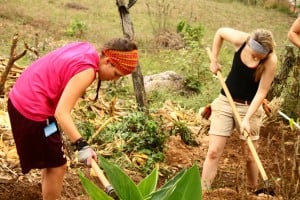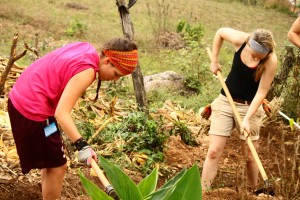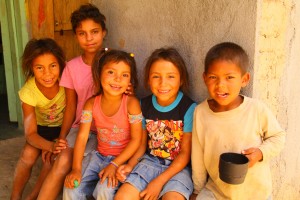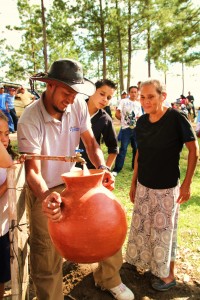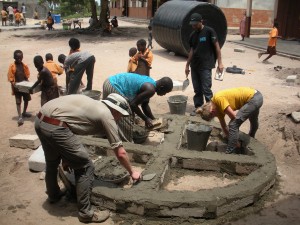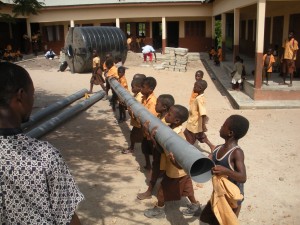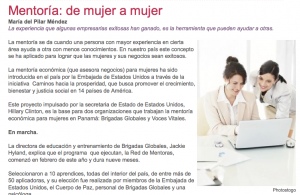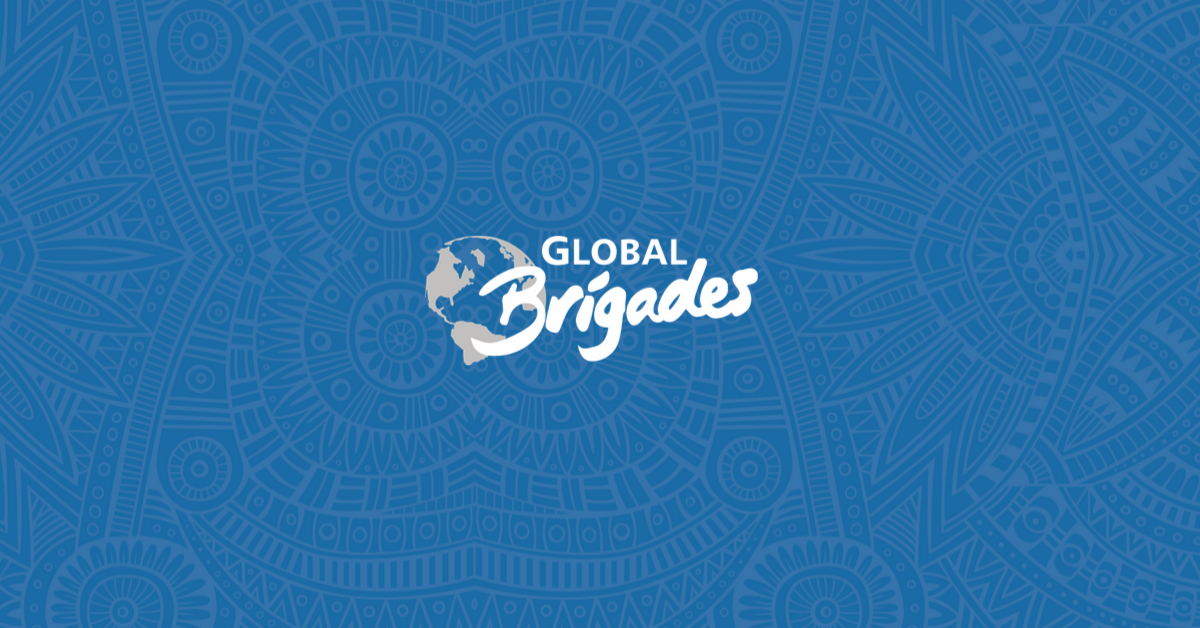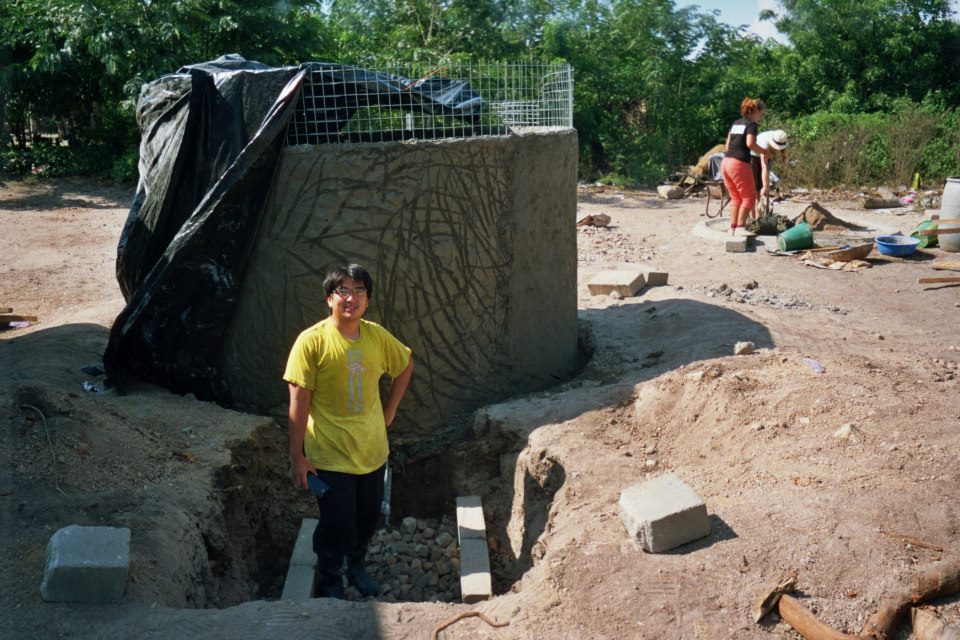The following article was recently featured in Positive Impact Magazine. Check out the magazine and original version here.
Global Brigades: Students Empowering Communities
By: Christina Hirsch
Fact: There are over 1.1 billion people in the world today who lack access to clean drinking water. (Source: UN Development Programme).
Recently, on March 22, World Water Day was celebrated around the globe. This day is dedicated to drawing attention to the plight that millions of under-resourced, rural, and indigenous communities face in accessing a basic necessity to life: water.
Global Brigades, the world’s largest student-led sustainable health and development organization, works throughout the year to bring solutions to this type of global inequality and others. Since 2005, more than 12,000 student volunteers from 350 university chapters have provided health and economic development solutions to more than 300,000 beneficiaries in Honduras, Panama, and Ghana.
Global Brigades works by empowering groups of university students to mobilize and fundraise for 7 to 10 day long Brigades (group trips) through 9 skill-based service programs: Architecture Brigades, Microfinance Brigades, Business Brigades, Medical Brigades, Dental Brigades, Public Health Brigades, Law Brigades, Environmental Brigades and Water Brigades.
global-brigades-students
Students installing pipes in El Canton, Honduras | Photo: Christina Hirsch
On a Brigade, students work alongside professionals to identify the local health and development needs of a community, and to develop and implement solutions to these problems. Each successive Brigade from other university chapters help build upon the work of the previous Brigade, while Global Brigades’ in-country staff provides follow up throughout the year to ensure a sustainable and holistic approach to their projects.
The most under-resourced communities that Global Brigades works with are located primarily in Honduras and Ghana. There, Water Brigades addresses the fundamental need for access to clean and sufficient drinking water. Water Brigades has operated in Honduras since 2009 and to date has completed 6 community-wide water systems, bringing clean and sufficient water to over 3,600 community members! In the last year alone, 45 university groups representing 530 students have volunteered their time in Honduras.
Children in Zurzular, Honduras | Photo: Christina Hirsch
The Water Brigades program began as a direct response to the illnesses that Medical Brigades volunteers were frequently seeing during their mobile medical clinics in Honduras. Volunteers knew that many common illnesses, such as diarrhea and parasites, could be prevented by tackling their root causes, including contaminated water and sanitation practices.
In the rural communities that Global Brigades works with in Honduras, less than 70% of homes are connected to a water system and water is not at all treated.
Inauguration of water project in Joyas del Carballo, Hodnuras | Photo: Christina Hirsch
With clean drinking water necessary for consumption, in addition to washing hands, flushing toilets and maintaining sanitary living conditions, it became apparent that community-wide water systems and sanitation education would have to be an integral part of Global Brigades’ work in these communities, and Water Brigades was thus born.
In January 2010, the newly completed water system in the community of El Zurzular, Honduras was inaugurated, marking Global Brigades’ first project inauguration. Monitoring and follow-up in El Zurzular proved that Water Brigades’ first completed full-scale water system was in fact improving water quality, water quantity, and overall health in the community. The health center in El Zurzular, which had reported 17 cases of diarrhea in children under five years of age in the six months leading up to the initiation of the new water project, reported zero cases in the first six months after the system was completed.
So how are students involved? In Honduras, Water Brigades volunteers get hands-on experience in the construction of gravity flow water systems. These systems operate by accessing a naturally occurring water source above the community and using gravity to bring the water through a series of pipes to the community below. An important component of the system is the water storage tank where the water is purified with chlorine.
In addition to this labor-intensive work, Water Brigades volunteers provide education and training to the community so that they can properly administer, operate, and maintain their water system. Volunteers develop workshops, skits, and activities that they perform in the local schools so that school-aged children can learn about proper sanitation practices related to water. A Water Council and Basic Sanitation Committee are also established in communities to empower and support local community leaders in maintaining the water system and promoting sanitation practices.
Recently, Global Brigades conducted interviews with community members in El Canton, Honduras, the site of Global Brigades’ most recently completed water project. Andres Godoy Alvarez, a local member of the community’s Basic Sanitation Committee that promotes sanitation and hygiene practices in the locality, reported that:
honduras
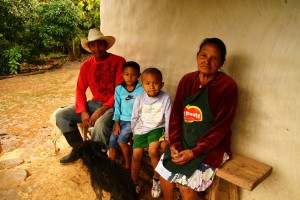 Andres Godoy Alvarez and family | Photo: Christina Hirsch
Andres Godoy Alvarez and family | Photo: Christina Hirsch
“Before, the water passed through the community of El Bote and they used the water there, but the water did not reach many of the homes in the higher areas of the community.
So, we fought to have a personal water tank here in El Canton. We made a tank with the help of the mayor, but the tank did not provide sufficient water and did not reach all the homes; there were always problems with getting water to the homes in the higher areas.
I am thankful for the group that came and made new connections to better the water distribution and for making a new tank. Everything has changed and everything is better now. I am thankful for the people that came from the United States to work here. They also taught us how to work, and now we work longer and more efficiently – and we have advanced a lot.
I am a member of the Sanitation Committee and the community feels a difference because of the work of the Committee. The trash has disappeared from our backyards, and we have made a campaign to burn trash. Our backyards are clean, and we visit all the houses and they have changed a lot.”
Water Brigades in Honduras is proud to report that since January, 2011, 53 community leaders, including Andres Godoy Alvarez, have been trained on how to maintain the water systems and on how to increase sanitation practices in their communities. In addition, student volunteers have helped to construct two 5,000 gallon water storage tanks, repair one 11,000 gallon tank, dig and install 25.5 kilometers of trenches, and distribute 155 safe drinking water storage containers. It is hard to believe that all of this was accomplished in one year, with the majority of the work coming from undergraduate university students!
Water Brigades, Ghana | Photo: Orion Haas
In 2011, Global Brigades expanded to Ghana, Africa, with Water Brigades as one of the initial three programs operating in the country. In Ghana’s Central Region, more than 50% of the community members Global Brigades works with collect untreated water from a river, stream or pond for drinking. Water Brigades helps address this situation by installing water catchment systems to collect and store rainwater, and by providing methods and education on how to purify collected water. So far Water Brigades in Ghana has completed 5 projects impacting over 2,000 community members.
According to the UN Development Programme, achieving universal access to water and sanitation by 2015 would prevent 2 million people’s death over the next decade. Combating the lack of access to clean drinking water is a global crisis that requires the attention of governments, NGO’s, and local communities. But it also needs for average citizens across the globe to learn more about this crisis and to take action where they can. Through Global Brigades, university students across North America, Ireland, and the UK are showing that mobilizing young people to work in partnership with local communities can be a part of the solution. We invite you to learn more about Global Brigades and to see how you can get involved by visiting: www.globalbrigades.org.
Water Brigades Ghana | Photo: Orion Haas
About the author: Christina Hirsch has lived and worked in Central America for the past two years. Currently, Christina is the Communications Manager for Global Brigades, the world’s largest student-led sustainable health and development organization. Christina works to photograph and document Global Brigades’ development projects in order to highlight and showcase the work that university students are doing in conjunction with local community members in Honduras, Panama, and Ghana.

